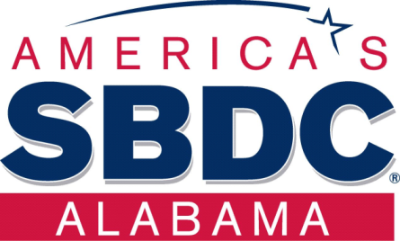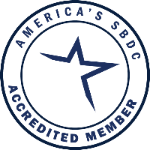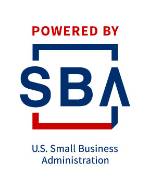Funded in part through a cooperative agreement with the U.S. Small Business Administration. All opinions, conclusions or recommendations expressed are those of the author(s) and do not necessarily reflect the views of the SBA. Reasonable accommodations for persons with disabilities will be made if requested at least two weeks in advance.

About the Small Business Development Center
The TROY SBDC provides consulting to help new entrepreneurs evaluate their business ideas and existing businesses remain competitive in today’s dynamic, global marketplace. Our business advisors have advanced degrees and varied backgrounds with years of practical experience.
SBDC Services

Compliance Assistance
The SBDC provides guidance on business compliance, helping entrepreneurs understand and adhere to the various regulations and legal requirements necessary for operating a business.

Business Planning
We offer expert advice on creating effective business plans, essential for outlining your business goals, strategies, and financial projections.

Marketing Support
Our team assists in developing robust marketing strategies to enhance your business's visibility and growth potential.

Business Management and Financing
The Alabama SBDC Network specializes in one-on-one business advising and educational training. Our programs are tailored to the needs of small businesses, focusing on skill enhancement and financial management. In 2021, the network helped over 3,700 small businesses and facilitated almost $77 million in external financing, creating over 970 jobs.

Government Contracting (APEX)
Since 1985, the SBDC has been offering professional assistance to Alabama companies looking to compete for government contracts. Our certified procurement specialists utilize a unique bid-match database system to aid small businesses in bidding on government contract opportunities, having helped businesses win over $3 billion in awards over the last three years.

International Trade
The Alabama International Trade Center, established in 1979, provides one-on-one trade assistance to small businesses aiming to increase export sales. Our export professionals offer counseling, research, and training to help firms enter foreign markets and secure export financing for Alabama-made products.
One-on-One Advising
The Small Business Development Center at Troy University provides consulting with trusted advisors to level the playing field and empower your business. Our business advisors have advanced degrees and varied backgrounds with years of practical experience.
Our advisors can help new entrepreneurs evaluate their business ideas by giving honest, forthright advice. Business advising can also ensure existing businesses remain competitive in today’s dynamic, global marketplace.
A Troy SBDC business advisor can assist in the following areas:
- Developing Business Plans and Loan Proposals
- Creating Marketing Strategies
- Identifying Funding Sources
- Marketing to the Government
- Starting a Business
Request Advising Services
Register Here
One-on-one advising services with SBDC business advisors are always completely confidential and provided at no cost. We are available to address any questions or concerns you may have about our services! Please feel free to email our Center directly.


Training
The Troy University SBDC offers affordable training seminars on business topics including business planning, marketing, finance, management, taxes, and government contracting. Our training seminars are designed to help broaden your business knowledge, no matter if you are a new business owner or have been in business for years.
For individuals who are just starting a business or those existing business owners
who are looking to strengthen their knowledge base, one of our most popular programs
is the NxLeveL Business Planning Series. NxLeveL is a series of ten, three-hour sessions
where participants gain a clear understanding of the financial, managerial, and technical
requirements of starting and operating a business. The motto of NxLeveL is “learn
it today, use it tomorrow”. During the ten-session/ten-week series, participants explore
and evaluate the feasibility of their ideas, learn common pitfalls to avoid, and discover
ways to increase their probability of success.
Webinars and Workshops
At the SBDC at Troy University, we offer a diverse range of webinars and workshops designed to support and educate small business owners and entrepreneurs. Our sessions cover a wide array of topics, including financial management, government contracting, compliance, international trade, and more. These programs are tailored to equip participants with the necessary tools and knowledge to successfully manage and grow their businesses.
Stay Updated: Our webinars and workshops are continually updated to reflect the evolving needs of the business community. To view our current offerings and to register, please visit the Alabama Small Business Development Center website.
LEARN MORE
Current Programs

Start Your Business Class (DHR Program)
Designed for SNAP benefits recipients, this program provides comprehensive entrepreneurial education over 20 weeks. It includes modules on entrepreneurship, business basics, and marketing. If you are a SNAP recipient interested in enrolling, sign up to get qualified by the Department of Human Resources

Urban Poverty and Entreprenuership Initiative
Partnering with the USDA & Notre Dame, this program targets low-income populations in Daleville, Troy, and Phenix City. It includes intensive business education, mentorship, and networking opportunities, aiming to empower individuals, stimulate local economies, and foster a culture of entrepreneurship.

The ALDOT DBE (Disadvantaged Business Enterprise)Program
is a federally mandated program administered by the Alabama Department of Transportation (ALDOT). The program is designed to increase the participation of businesses owned by socially and economically disadvantaged individuals in state and local transportation contracting. This program typically includes businesses owned by minorities, women, and other disadvantaged groups. It aims to ensure a level playing field and to foster equal opportunity in ALDOT contracts, as well as to improve the capacity of DBE firms to compete, successfully, in the marketplace outside of the DBE Program.

USDA Food Venture Programs
This initiative focused on leveraging Alabama's culinary traditions to create self-employment opportunities in rural areas, transforming local food practices into viable income sources and promoting entrepreneurship. Food Truck owners, restaurant owners and future entrepreneurs had the opportunity to learn strategies to grow their business and marketing mentoring.


"A partnership program with U.S. Small Business Administration".
Contact
Director, Lead Business Advisor: Juliana Bolivarjbolivar@troy.edu
SBDC at Troy University
63 S Court Sq
Troy, AL 36081
334-808-6793

Success Stories

Leadership and management the talk of annual SBDC Day 2024
Troy University’s Small Business Development Center kicked off the third annual SBDC Day Wednesday with a series of webinars plus an in-person event led by Sorrell College of Business graduate and SBDC Advisor Will Pouncey.
Holding both a bachelor’s and a master’s degree from TROY, Pouncey is the Managing Director for Optics Capital Advisors, a firm that specializes in M&A and Investment Banking. Pouncey’s workshop, titled “Leadership and Management for Industry Professionals and Entrepreneurs” focused on soft skills for business owners.

Six-week USDA Entrepreneurship Bootcamp by TROY SBDC will launch in three Alabama cities in February
In a landmark initiative funded by the United States Department of Agriculture (USDA), Troy University is setting a new standard in entrepreneurial education with the launch of its Entrepreneurship Bootcamp.
Inspired by Notre Dame University’s model, the program is making history as the largest of kind in the United States, being run simultaneously in three cities by a single organization, said Juliana Bolivar, director of the Small Business Development Center at TROY.

Mt. Moriah Farms successfully launches new brand identity with support from SBDC
In the heart of the Wiregrass, Mia Scott’s Dothan-based Mt. Moriah Farms exemplifies the dedication to quality in its family-owned farming business, specializing in goat-based products.
Yet, despite its excellence, the farm grappled with challenges common to many burgeoning businesses: brand recognition and differentiation. This issue was accentuated by the similarities in branding and aesthetics with a partner farm that specialized in cow-based personal care products and meat. Sharing tent space at events and similar brand colors led to confusion among their clientele.

DHR, Sorrell College of Business, and SBDC at Troy: A Triumphant Year of Nurturing Entrepreneurial Dreams
A trailblazing entrepreneurial program between the Alabama Department of Human Services, the Sorrell College of Business and the Small Business Development Center at Troy University has showcased the transformative potential of collaboration.